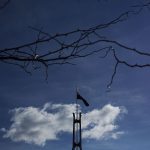Nurse education, the forgotten discipline
Nurse education does not have the same level of recognition as other disciplines. Dr Vivienne Decleva wishes the nursing profession would recognise this specialised field more formally.
In a gathering of nurses, the conversation is regularly steered towards the question of nursing expertise. To such a question, I proudly reply ‘education.’ “Yes, but what is your discipline?” is the immediate response, usually uttered in an annoyed tone, indicating that my answer was not sufficient. It is at this stage that I take a big breath and… pause. What can I say to them?
Like many nurses, I have expertise in a number of fields, and like them, I feel that I am more a master of one (nursing education) and an expert of several others. With hesitation and uneasiness, I feel pressed to list my nursing experiences: community nursing, family nursing, aged care, mental health nursing, disability nursing. I always feel uneasy responding in such a way whilst denying the knowledge of my more extensive and more recent nursing education experience.
Yet, when I think back to some twenty years ago, when I was a novice in nurse education, it was a highly regarded discipline. Back then, it required well-developed knowledge and skills. In addition, it required knowledge in adult learning, a sound grounding of learning theories and an aptitude towards the development of the person through teaching.
At that time, there were specialised courses on nurse education, there were interest groups, and especially from the United States, there was an emergence of literature on nurse education. I most vividly remember being engrossed in reading the theories of Paterson and Zderad, Peplau and Henderson, just to name a few, and working out how to combine their nursing theories with the educational theories of Dewey, Rogers and Dreikurs.
The fundamental value of nurturing the Other through the perspective of a humanistic/person centred approach is still as relevant to nursing today as it is to education. However, as a result of new knowledge and social demands, both disciplines have evolved and become more specialised in their sets of skills and attributes. The old adage that a good nurse would make a good nurse educator does not necessarily apply to classroom teaching.
I have always regarded nurse education as a specialised field of nursing. Being a specialised field it requires a specific set of attributes and skills. The transferal of knowledge from the clinical situation in the classroom is no longer all that it is required. The preparation of nurses requires many of the pedagogical skills that go beyond PowerPoint presentations and/or didactic teaching.
Often, when a nurse becomes a nurse educator, the nurse must leave behind some of the behaviours and attitudes she has been accustomed to in the clinical situation, as education requires subtle, but different sets of attributes.
Nurse education requires understanding and commitment towards the personal growth of the Other. It requires a sense of humility, knowing when to hold back to allow the Other to learn, accurate judgment in selecting the learning activities and the ability to deliver information in a way that is engaging and captivating.
Similar to the nurse in a clinical setting who is constantly working towards improving her clinical skills, the nurse educator is constantly working towards improving skills in pedagogy as well as keeping current with clinical practices.
I believe that education must be soul enhancing and never soul destroying. If it is soul destroying, then it is not education. Presently, in all universities and training organisations, there are nurse educators who are committed to making the learning experience a positive one so that it is soul enhancing.
These educators are dedicated to both nursing and to nurse education and skilled in combining the two, so that new graduates can be well prepared to meet the challenges of the 21st century.
Like nurses all over the world, they do not expect any thanks, giving and caring, as it is for most nurses, part of their psyche.
In comparison to other disciplines of nursing, unfortunately nurse education does not have the same level of recognition. There is very little research on the effectiveness of classroom teaching, there is a lack of in-service programs specialising in the teaching of nurses and there are no special interest groups for nurse educators. It seems that nurse education as an individual discipline has indeed been forgotten.
It would be appropriate to see the nursing profession recognise nurse education more formally by:
- developing interest groups and a professional association for nurse educators
- instigating research on the teaching of nurses
- requesting papers and presentations on the topic of nurse education for conferences
- encouraging nurse educators to be more vocal and share the importance of the work that they do
There needs to be a greater awareness within the nursing profession that nurse education is an important specialised discipline of nursing.
Dr Vivienne Decleva is an experienced Nurse Educator at Victoria University. She has a DEd and a Masters of Nursing and has studied adult learning in Australia and USA and is currently completing a Masters of Counselling. Vivienne has presented papers on nurse education at national and international conferences and is committed to the development of the nursing profession. http://au.linkedin.com/in/viviennedecleva













